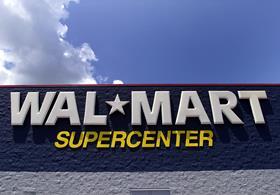
Multinational retail giants like Wal-Mart and Carrefour show no signs of paring down their expansion programmes in China, despite a steady drop in rates of foreign direct investment in the country over the past four months.
According to reports in the China Daily, US behemoth Wal-Mart plans to open a further 23 stores in China by the end of the first quarter, which would take its store tally to 140. The planned roll-out marks a rapid increase on last year, when it opened 19 stores, and on 2007, when it added 30 stores.
Meanwhile, Carrefour has pledged to keep pace with the expansion rates of recent years during 2009. The French hypermarket chain opened 23 stores last year and now has a total of 135 outlets across the country, the China Daily reported.
Elsewhere, 7-Eleven, the world's largest convenience chain, is making its debut in Shanghai this month with the opening of its first four stores there. It reportedly plans to open 100 outlets in the Chinese commercial capital in the next three years.
Cao Lisheng, chief economist of the National Commercial Information Centre of China, was quoted as saying that while the global economic downturn would take its toll on demand for high-end luxury goods, the impact on sales of daily necessities sold by supermarket chains would be negligible. 'Compared with department stores, supermarkets will be less affected by the financial crisis,' Mr Cao told Chinese news agency Xinhua.
Falling rental prices for housing in China's major cities have also presented retailers with new opportunities to expand their networks while the country's second- and third-tier cities have become a key focus for foreign retailers.
'The second- and third-tier cities are promising markets as the infrastructure development would lead to a greater concentration of people moving there,' Barry Friedman, vice-president of corporate affairs for Wal-Mart China, was quoted as saying. 'Better communications and transport also mean we will be able to reach our products to these locations more easily.'
Mr Friedman added that Wal-Mart is keeping a close eye on the Chinese government's policies to boost domestic consumption, such as its move to subsidise farmers' purchases of home appliances.
Pei Liang, secretary general of the China Chain Store and Franchise Association, said China's central and western regions have not been hit so hard by the financial crisis compared with its coastal cities - and are thus more suited to expansion.
Nevertheless, the retail market is expected to become even more competitive on the pricing front this year, and several chains are stepping up efforts to source produce directly in order to strip cost out of the supply chain and offer discounts to consumers.
Carrefour is on a drive to buy up to 50 per cent of its agricultural produce directly from farmers this year, according to Chen Bo, spokesman for Carrefour China, up from current levels of 15 per cent. 'By skipping the dealers, we can save a lot of costs and provide a 10 or 15 per cent discount to our customers,' he was quoted as saying.
Meanwhile, Shanghai Bailian Group's department store division signed orders to purchase some Yn10m (US$1.46m) worth of produce direct from farmer groups at the recent Wuhan Agriculture Produce Fair in central China's Hunan Province, according to a statement by Lianhua Supermarket Holdings Co, a subsidiary of Shanghai Bailian. The orders involved 30 different agricultural companies and the retail group plans to build strategic alliances with these enterprises, according to Chinaknowledge.com.






No comments yet